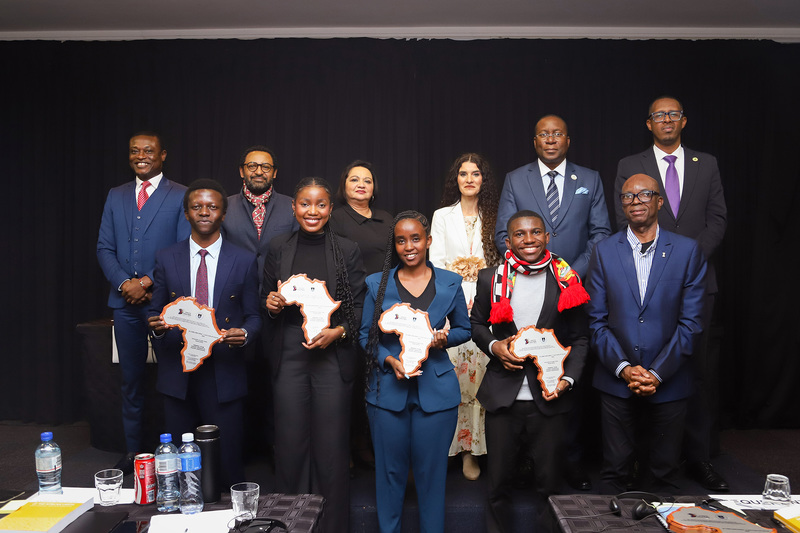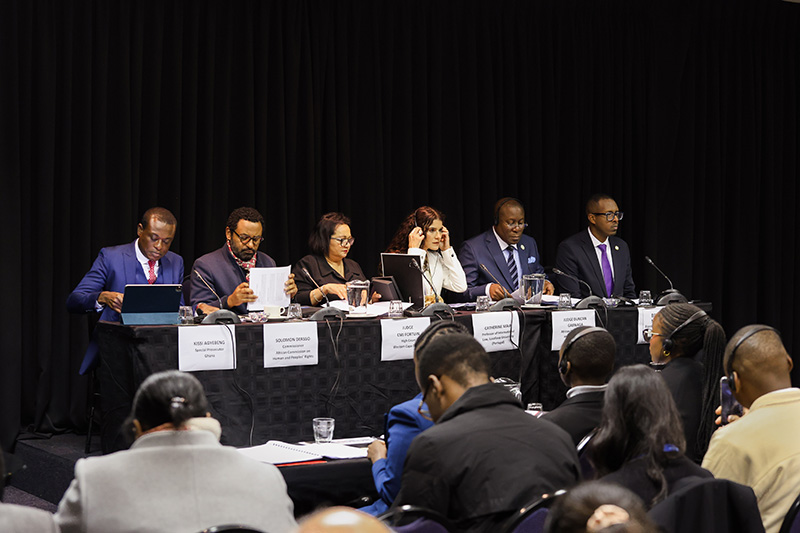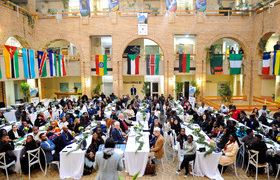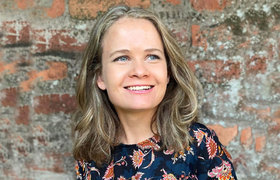All rise: African Human Rights Moot Court
10 July 2025 | Story Kamva Somdyala. Photo Je’nine May. Read time 7 min.
Law students from Kenya and Mozambique emerged victorious following a moot court challenge where they put legal theory to practice at the 34th Christof Heyns African Human Rights Moot Court. The competition was hosted by the University of Cape Town (UCT), from 29 June to 5 July, with participation from 57 universities: 41 anglophone, nine francophone and seven lusophone teams.
The winners in this year’s competition were the respondents from the University of Nairobi (Mwiti Edna Nkirote and Dickson Gitonga), with Délcia de Albertina Julião and Miguel Enzo Antonio, who represented Instituto Superior de Ciências e Tecnologia de Moçambique.
The runners-up were the British University in Egypt, represented by Hala Ezzeldin and Seif Ezzat, and the Université Catholique d’Afrique de l’Ouest, represented by Monké Jude Samuel-Élie Gnanzi and Yah Arielle Mariame Touré.
Teams from various countries across Africa grappled with the hypothetical case of the African Commission on Human and People’s Rights (on behalf of the Association for Zambezian migrants) as the applicants and Baharia as respondents. Participants were scored on their case knowledge, human rights law knowledge, and technical presentation; as well as the strength of their argument. Many of the week’s arguments were hosted at the Faculty of Law’s Kramer Building on UCT’s middle campus.

One of the salient points of the case was how Baharia was meant to deal with the issue of citizenship. According to the facts of the case, France created the Federation of Baharia and Zambezia (FeBaZa) in 1820, under the control of a government ruling on behalf (and in the name) of France. Shortly after FeBaZa was established, the French government imported a large number of slaves from rural West African communities into Zambezia. These slaves, known as Nkoafo in the Baza language, worked on farmlands allocated by the French government. Baharia and Zambezia secured their independence from France in 1963. The agreement required the two newly independent states to guarantee the right of the Nkoafo who lived in Zambezia to move to Baharia.
The normal ceremonial aspects of court were adhered to. On most occasions, five judges probed counsel in front of them, which included two from the applicants and two from the respondent, apart from in the final. The court gallery was made to rise before the hearing, and strict adherence to time was enforced.
Presidential Reverence Act
As is the case in real-life courts, applicants and respondents had to argue whether the court had jurisdiction to hear the matter, advance procedural and merit-based arguments according to the facts and contend with a flurry of engaging questions from the bench. “The facts of the case warrant that the application be heard before this court,” argued one member of the applicants’ team during one of the sittings.
In early February 2022, a group – believed to be Nkoafo – numbering over 2 000 invaded the precinct of the presidential house in Kande, the capital city of Baharia, to protest. Three days after the incident, President Albertina Omonzo addressed the country, saying: “... It is time to cleanse our citizenry space. Therefore, effective today, the Nkoafo who joined the protest must be arrested, prosecuted and punished in accordance with the Presidential Reverence Act (PRA).”
“Is depriving them their citizenship necessary when there are other remedies for alleged wrongdoing, such as imprisonment?”
Inter alia, this Act allows for the following: “Where the High Court is satisfied that the act or conduct of a person convicted of this offence is prejudicial to the vital interest of the President or the state, it may deprive that person of his Baharian citizenship.”
In August 2022, all 400 arrested persons were arraigned before the Kande High Court on charges that they had threatened the president, in violation of the PRA. On 23 January 2023, after five months of trial, the Kande High Court convicted all of them and made an order depriving them all of their Baharian nationality, The Court reasoned that the actions of the Nkoafo were seriously prejudicial to the vital interest of Baharia to the extent that they threatened the machinery of government, the president’s security, and Baharia’s economic interests. One week later, they were all expelled to Zambezia, where they were granted stateless status and remain to this day.
In one instance, counsel for the applicants said depriving people of their citizenship is at odds with internationally accepted law and does not align with Article Three of the African Charter, which guarantees that everyone is equal before the law. Another applicant argued: “Is depriving them of their citizenship necessary when there are other remedies for alleged wrongdoing, such as imprisonment?”
One respondent replied to that question, saying the government of Baharia is not bound by its own precedent and can choose which remedy to apply, according to the circumstances.
Judges also gave many instances of constructive feedback during the sessions, complimenting the teams’ quick thinking, giving advice on legal referencing, and encouraging teams to use their limited time to argue wisely.
The finalists argued before a bench of six eminent judges. The presiding judge was Judge Chantel Fortuin (Western Cape Division), joined by Professor Catherine Maia (Professor of International Law, Lusófona University), Justice Duncan Gaswaga (Judge at the African Court on Human and Peoples’ Rights), Dr Solomon Dersso (commissioner at the African Commission on Human and Peoples’ Rights), Professor Benyam Mezmur (chairperson, UN Committee on the Rights of the Child), and Mr Kissi Agyebeng (special prosecutor of Ghana).
The 2026 edition will be hosted in Ivory Coast.
 This work is licensed under a Creative Commons Attribution-NoDerivatives 4.0 International License.
This work is licensed under a Creative Commons Attribution-NoDerivatives 4.0 International License.
Please view the republishing articles page for more information.



















